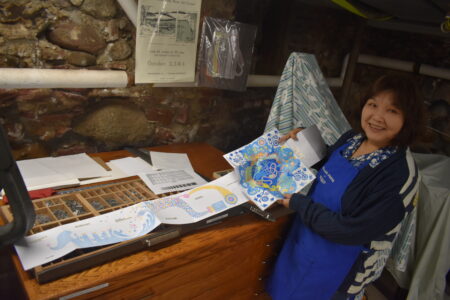Eastwood’s ‘Changeling’ shows mothers know best
NEW ULM – In folklore, a “changeling” is an imposter child left in place of a child stolen by fairies, but the 2008 film “Changeling” is no fairy-tale.
The New Ulm Film Society will screen “Changeling” at 6:30 p.m. Tuesday, at the New Ulm Public Library as part of the Clint Eastwood Director series.
At the time, “Changeling” was an oddity among Eastwood’s directing work, but later made a change in style. Unlike most films, Eastwood chose to only direct “Changeling,” and not act in it. The film is also a rare Eastwood film with a female protagonist, who is played by Angelina Jolie.
Eastwood never has been reluctant to tell stories focusing on women. In several of his previously directed films, he made efforts to center on women, including “Bridges of Madison County” and “Million Dollar Baby,” but with “Changeling” he had the added challenge of directing a real-life event. In this case, the film tells the true story of a child abduction that turned into a police corruption scandal.
In 1928 Los Angeles, Christine Collins, played by Jolie, reported her son, Walter, missing. The LAPD’s inability to find the Collins boy was a public embarrassment for months, but then miraculously the boy was found alive and safe. Police reunited the boy with his mother — only for his mother to declare this was not her son but an imposter. She was telling the truth, but the LAPD was not willing to admit it.
Police Capt. J.J. Jones pressured Collins to keep the boy, insisting he was the real Walter. After Collins refuses to go along with the switch, Jones has Collins committed to a mental hospital until she accepts the false Walter as her son.
“Changeling” is a fitting title, as it is almost a contemporary version of the legend, but the title is also appropriate because of the story structure. The movie starts out as a drama about child abduction, before changing into a political drama about the abuse of women in the early 20th century.
The screenplay for the film was written by J. Michael Straczynski after coming across a series of case files from LA City Hall that were going to be destroyed. He wrote the script using official court files. Some of the dialogue in the film was lifted directly from these files.
Straczynski was not initially researching a story about Christine Collins but rather a story about a serial child abductor that happened to cross paths with Collins. He quickly realized Collin’s story was more compelling. Eastwood agreed with Straczynski’s take on the story and decided to direct it immediately after reading the script.
Eastwood explained his reasons for directing were in part due to the time period. Eastwood grew up in the Depression era and had an interest in films set in that time period. With “Changeling” he worked hard to recreate Los Angeles from his childhood memories. He was also pleased the story focused on Christine Collins rather than other aspects of the true crime story.
“Changeling” is technically a true-crime story, but the tone of the movie changes greatly depending on which parts are emphasized. With a different writer and director, “Changeling” could easily be made into a horror film, but Eastwood wanted to make a story about a mother who refuses to give up on her real son. Eastwood specifically cast Jolie as Collins because she was a mother, and he felt she would understand the pain of losing a child.
The film marked a new direction in Eastwood films as a biographical director. Of his next 11 films, seven were based on true stories, all of which were about people facing significant scrutiny.
The screening begins at 6:30 p.m. Tuesday, Sept. 13, in the New Ulm Public Library meeting room. The film screening is free to the public.





